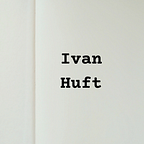Imagine cooking a chicken soup. Maybe it’s based on a family recipe, something you found online, or maybe you made your own recipe. You took a sip from a spoonful of the final product and felt satisfied, surprised even, at the almost perfect taste of the soup. Then you decided to take a photo of it to share it on social media. Placing it on a bowl, you felt proud of yourself at how grand it looked, like an expensive cuisine from a famous restaurant. You took the photo and posted it online, with the caption: “This is the best chicken soup ever! Proud of myself!” As well as provide the recipe below it.
Then after a few minutes, the likes came flowing in. Comments praising your recipe and cooking skills flourished. You felt happy. But that didn’t last long. Among the praises and compliments you received, the one thing that truly had an impact on you, was a comment from someone you don’t even know who insulted your soup and then claimed that they could make it better. Hurt and furious, you retaliated by calling them out on their unreasonable “hate comment”. Both you and your hater fired back at each other, until one of you finally stopped replying.
Spectators scrolling through the same social media platform came across your post, took a screenshot of it, and posted it on other platforms. Making fun of your claim for having “the best chicken soup ever”, their posts about you quickly gained attention and became a source of online discussion regarding which one has the best chicken soup recipe.
This likewise gained the attention of media outlets who didn’t waste time to write online articles about this war over chicken soup, along with a screenshot of your post. Alarmed, you immediately deleted the original post. But it was too late. Soon after, talk shows and podcasts start mentioning you and your chicken soup, and the online war that it started.
News networks began conducting street interviews of what recipe makes the best chicken soup. Even celebrity chefs started voicing out their opinion regarding this issue. Reports of countless suicide cases worldwide, said to be connected to online bullying over the “chicken soup war”, filled the newspapers.
This online phenomena inspired the involvement of the scientific community who conducted various experiments to create the “best tasting chicken soup”, by testing and combining a number of foreign ingredients not usually included when cooking the soup. Research and findings were then released, further increasing the popularity of the issue. It also inspired a number of philosophical discussions and debates regarding the importance of this topic on human life.
Politicians saw the opportunity and took it. They voiced out their opinions on making the best chicken soup, involving themselves with the issue. Some even went as far as to use it to leverage their standing and support by promising to enact laws that will establish a specific recipe to become the country’s national recipe for chicken soup. This threatened to eradicate any alternative recipes to be used, causing great unrest and producing various protests among cities. One group claims that “simple is best” and supports the existence of other inexpensive recipes to be used by common people. While the other believes that chicken soup is a gourmet meal and requires only the best ingredients possible.
Various world leaders from various countries did the same, inciting political conflicts among themselves. Even the United Nations crumbled in the face of this increasing conflict. One country claimed they make the best chicken soup of all, while others claimed otherwise. It took only a few months before the third world war finally began. Missiles were fired, bombs were dropped, soldiers were killed, civilians perished, and cities were destroyed. It didn’t take long before powerful nations armed with nuclear weapons decided to finally use them. Nations fell, cities disappeared off the map, and the hope for survival dwindled as the war went on.
When the bombings finally stopped, the earth had become a burning, radioactive wasteland. Uninhabitable, poisonous, and lifeless. Only death lingered among the corpses and ruins. Nothing and no one was left. This was the end.
